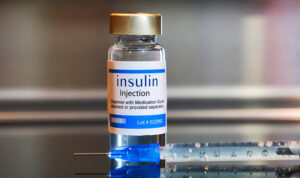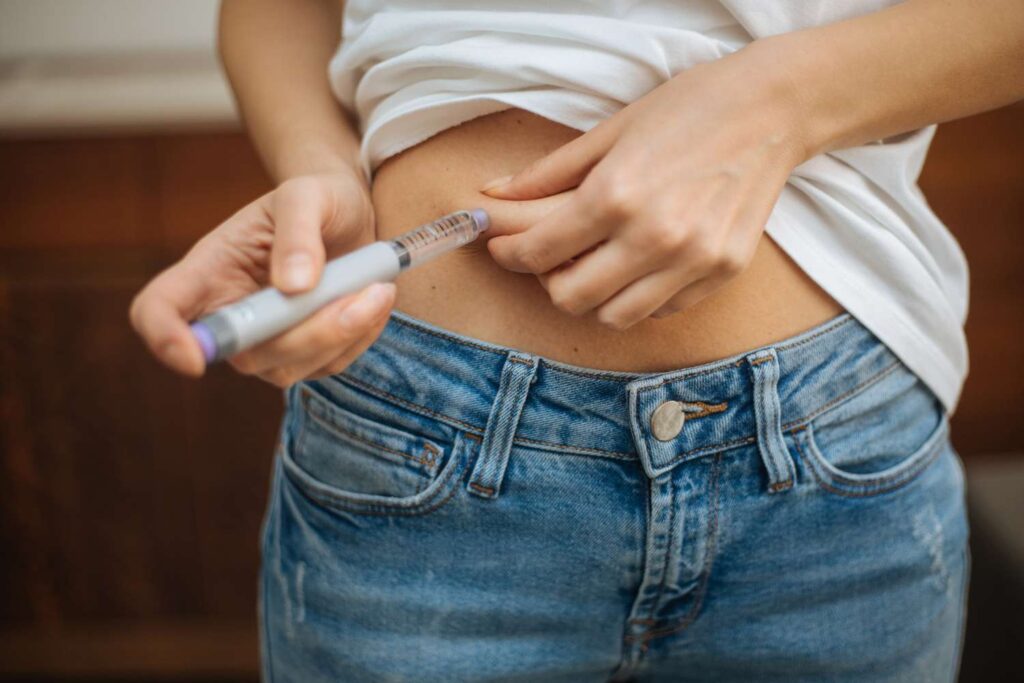Living with diabetes requires careful management of blood sugar levels, and for many individuals, this means incorporating insulin injections into their daily routine. Whether you’re newly diagnosed or have been managing diabetes for years, understanding the ins and outs of diabetes injections is essential for maintaining your health and well-being. In this comprehensive guide, we’ll explore everything you need to know about diabetes injections, from the different types available to tips for safe and effective administration.
Contents
What Are Different Types Of Diabetes Injections?
 When it comes to managing diabetes, there are several types of injections available, each serving a specific purpose in controlling blood sugar levels. Here are the primary types of diabetes injections:
When it comes to managing diabetes, there are several types of injections available, each serving a specific purpose in controlling blood sugar levels. Here are the primary types of diabetes injections:
Insulin Injections
This type of injection is the most common type of diabetes injection. Insulin is a hormone that helps regulate blood sugar levels by allowing cells to absorb glucose from the bloodstream. There are several types of insulin, including rapid-acting, short-acting, intermediate-acting, and long-acting. The type of insulin and injection schedule prescribed will depend on individual needs and the type of diabetes being treated.
Glucagon Injections
Glucagon injections are used to treat severe hypoglycemia, a condition where blood sugar levels drop dangerously low. It is a hormone that helps raise blood sugar levels by triggering the liver to release stored glucose into the bloodstream. Glucagon injections are typically used in emergencies when a person with diabetes is unable to consume glucose orally.
Amylin Analog Injections
Amylin is a hormone that works alongside insulin to regulate blood sugar levels by slowing down the rate at which glucose is released into the bloodstream after meals. These injections mimic the effects of natural amylin and are used in conjunction with insulin therapy to improve blood sugar control, particularly after meals.
Incretin Mimetic Injections
Incretin mimetics is a type of medication that mimics the action of increasing hormones in the body. These hormones help regulate blood sugar levels by stimulating insulin release from the pancreas and reducing the production of glucagon, another hormone that raises blood sugar levels. Incretin mimetic injections are typically used to lower blood sugar levels in people with type 2 diabetes.
Other Medication Injections
In addition to insulin, glucagon, amylin analogs, and incretin mimetics, there are other types of medication injections used to manage diabetes. These may include medications such as GLP-1 receptor agonists. This helps lower blood sugar levels by increasing insulin secretion and decreasing glucose production in the liver.
It’s important to work closely with a healthcare provider. This will help to determine the most appropriate type of diabetes injection(s) for your individual needs and to receive proper instruction on how to administer them safely and effectively.
What Injection Is Given Once a Week For Diabetics?
One injection that is given once a week for diabetes is a GLP-1 receptor agonist. These are a type of medication used to lower blood sugar levels in people with type 2 diabetes. They work by mimicking the action of a hormone called glucagon-like peptide-1 (GLP-1). It stimulates insulin release from the pancreas and reduces the production of glucagon, another hormone that raises blood sugar levels.
One example of a GLP-1 receptor agonist that is given once a week is dulaglutide (brand name Trulicity). Dulaglutide is a long-acting GLP-1 receptor agonist that is administered via subcutaneous injection once a week. It helps improve blood sugar control, reduces the risk of cardiovascular events, and can also promote weight loss in some individuals with type 2 diabetes.
How Many Injections For Diabetes?
 The number of diabetes injections required can vary depending on several factors, including the type of diabetes, individual treatment plans, and medication regimens. Here’s an overview of the typical injection requirements for different types of diabetes:
The number of diabetes injections required can vary depending on several factors, including the type of diabetes, individual treatment plans, and medication regimens. Here’s an overview of the typical injection requirements for different types of diabetes:
- Type 1 Diabetes: People with type 1 diabetes typically require multiple daily injections of insulin to manage their blood sugar levels effectively. This usually involves a combination of long-acting (basal) insulin to provide a steady background insulin level and rapid-acting (bolus) insulin to cover meals and correct high blood sugar levels.
- Type 2 Diabetes: The injection requirements for type 2 diabetes vary depending on the individual’s treatment plan. Some people with type 2 diabetes may manage their condition through lifestyle modifications, oral medications, or a combination of oral medications and injectable medications.
- Gestational Diabetes: Women with gestational diabetes may require insulin injections if blood sugar levels cannot be controlled through diet and exercise alone. The number of injections and specific insulin regimens will depend on individual needs and treatment goals.
- Other Types of Diabetes: In rare cases, individuals with other forms of diabetes, such as maturity-onset diabetes of the young (MODY) or secondary diabetes, may require insulin injections or other injectable medications to manage their condition.
Overall, the number of injections for diabetes management can range from one injection per day to multiple injections per day, depending on individual circumstances.
What Are The Benefits Of Diabetes Injections?
Diabetes injections, such as insulin and other injectable medications, offer several benefits for individuals managing diabetes:
- Blood Sugar Control
One of the primary benefits of diabetes injections is improved blood sugar control. Insulin injections help regulate blood sugar levels by facilitating the uptake of glucose into cells. Thereby preventing hyperglycemia (high blood sugar) and its associated complications.
- Flexibility
Injectable medications, particularly insulin, provide flexibility in managing diabetes. Different types of insulin with varying onset and duration of action allow individuals to tailor their treatment regimen to their lifestyle and specific needs.
- Reduced Risk of Complications
By effectively controlling blood sugar levels, diabetes injections help reduce the risk of long-term complications associated with diabetes. This might include cardiovascular disease, kidney disease, neuropathy, and retinopathy.
- Improved Quality of Life
Properly managed diabetes can lead to an improved quality of life. Diabetes injections help individuals maintain stable blood sugar levels. This can result in increased energy levels, reduced fatigue, better mood, and enhanced overall well-being.
- Long-Term Disease Management
For individuals with type 1 diabetes and some with type 2 diabetes, insulin injections are essential for long-term disease management. By providing the body with the insulin it needs, injections help maintain stable blood sugar levels and prevent acute and chronic complications of diabetes.
Overall, diabetes injections play a crucial role in managing diabetes effectively. Thus, it’s important to work closely with the healthcare providers to develop a comprehensive treatment plan.
What Are Some Risks And Considerations Of Injections?
 While diabetes injections are essential for managing blood sugar levels effectively, there are certain risks and considerations associated with their use. These include:
While diabetes injections are essential for managing blood sugar levels effectively, there are certain risks and considerations associated with their use. These include:
Hypoglycemia
One of the most significant risks associated with insulin injections is hypoglycemia, or low blood sugar. Injecting too much insulin relative to blood sugar levels, skipping meals, or engaging in excessive physical activity without adjusting insulin doses can all lead to hypoglycemia. Symptoms of hypoglycemia include shakiness, sweating, dizziness, confusion, and in severe cases, loss of consciousness.
Injection Site Reactions
Some individuals may experience local reactions at the injection site, such as redness, swelling, itching, or pain. These reactions are usually mild and temporary but can occasionally be more severe. Proper rotation of injection sites and proper injection technique can help minimize the risk of injection site reactions.
Allergic Reactions
While rare, some individuals may be allergic to components of insulin or other injectable medications used to manage diabetes. Symptoms of an allergic reaction may include rash, itching, swelling, or difficulty breathing. If an allergic reaction is suspected, medical attention should be sought immediately.
Injection Phobia
Fear or anxiety related to injections, also known as needle phobia or trypanophobia, is a common concern for many individuals with diabetes. Injection phobia can lead to avoidance of necessary injections, resulting in poor blood sugar control and increased risk of complications.
Improper Injection Technique
Incorrect injection techniques can affect the absorption and effectiveness of insulin and other injectable medications. This can lead to erratic blood sugar levels and poor diabetes management. Proper training and education on injection techniques are essential for individuals using injectable medications for diabetes.
Financial Considerations
Diabetes medications, including injectable medications, can be costly, especially for individuals without adequate insurance coverage. Access to affordable diabetes care and medications is essential for effective management of the condition.
Overall, while diabetes injections are essential for managing blood sugar levels and preventing complications, individuals need to be aware of the potential risks and considerations.
Conclusion
In conclusion, diabetes injections are vital tools for effectively managing blood sugar levels and improving overall health for individuals living with diabetes. Whether it’s insulin injections or other injectable medications, these treatments offer benefits such as better blood sugar control, flexibility in managing diabetes, and reduced risk of complications. However, it’s essential to be aware of potential risks and considerations.
By working closely with healthcare providers, individuals can develop personalized treatment plans that meet their specific needs and empower them to lead healthier lives. Do you want to get rid of diabetes? Join our online diabetes treatment program and reverse Diabetes naturally through lifestyle changes such as a Personalized Diet plan, Exercise, Yoga, dieticians, and health coaches.

